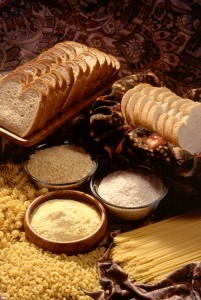Carbohydrates as dietary requirement
Whenever and wherever we talk of weight management or a healthy diet, most of the people give a nonsensical advice of avoiding carbs (carbohydrates) without realising what they are advising on or what is the role of carbohydrates in our body
Before we explain on what constitutes carbs, we would like to put forward a single fact – “Carbs are not bad for your health, don’t quit them”, carbohydrates provide the body with energy which is a pre-requisite for survival. This energy is stored by our body in our liver for our use.
The dietary fibre provided by carbohydrates rich food is essential for the health of our intestines, our stomach lining and offcourse our bowel movement. They are vital for the functioning of our brain and muscles.
Now since we have established the importance of carbohydrates as an important food group and an essential dietary requirement let’s discuss on what constitutes the “Good carbs” and what constitutes the “Bad carbs”.
Good carbs are the ones which provide dietary fibre and complex carbohydrates which effectively means foods which takes longer to be broken up into glucose. The foods which are classified as good carbs are
– Fruits: they are rich in dietary fibre and they provide energy, minerals, vitamins and phytonutrients (plant producing nutrients).
– whole grains: like wheat, oats, barley, durum wheat (Suji) etc..
– Vegetables: yes vegetables though a food group in itself have carbohydates in them.
Bad Cards are the ones which are prepared with refined flour and added sugar as in cakes, pastries, cookies, white bread so on and so forth.
Types of carbohydrates?
Let’s discuss in detail the kinds of carbohydrates
- Simple carbohydrates
- Complex carbohydrates
Complex carbohydrates as discussed take time by the body to be broken and converted to glucose a.k.a energy. Starch and dietary fibre constitute this group.
Starch
Starch is present in various foods like cereals, rice, grains etc. Starch intake in natural form though is good for the body but in processed foods like doughnuts, pizza bases, white bread etc is harmful and should be limited.
An increased starchy food can not only lead to weight gain, obesity but can also wreak havoc onto the blood glucose levels in your system, hence the starch rich foods should be taken in moderation but should not be removed from the diet as they provide the much needed energy
Dietary fibre is of two types
– Soluble dietary fibre: A simple definition of soluble fibre is the fibre which dissolves in water. This fibre along with water form a gel thereby slowing the digestive process. The stomach feels satiated thereby reducing/eliminating food cravings and promoting weight loss. These fibres have a positive effect of blood glucose levels which help control diabetes. It also helps lower the bad cholesterol saving the human body from cardiovascular diseases.
soluble fibre is found in Oats, legumes, fruits (apples, oranges, pears…), carrots, nuts, peas etc……
– Insoluble dietary fibre: The fibre/ plant material which is passed through our system as is known insoluble fiber. They work as a laxative and is gut for our diet. These fibres stimulate weight loss too.
This fibre is found in Spinach, Green leafy vegetables, Wheat, Wheat bran, Brown rice, carrots, grapes, fruit skins, tomatoes etc…
Both the types of dietary fibre is required by the body and a healthy diet requires a presence of both the varieties.
Please note: it is recommended that at least 14 gms of dietary fibre should be consumed for each 1000 calories
Simple carbohydrates
these are carbohydrates which are readily converted to glucose. They largely include sugar, fructose and refined flour based products like pizza bases, white bread, softdrinks, sweetened fruit juices, fast food, cakes, pastries, doughnuts, pies, cookies etc.
Our diet usually contains these type of carbohydrates and this is the main reason obesity occurs and people advise against having carbs.
these are essential when instant energy is required as they tend to immediately release energy in our blood stream but they are not healthy and can cause diabetes, obesity, LDL increase and cardiovascular diseases.
Key takeouts
| Sr No | Takeouts |
| 1 | Don’t abstain from carbohydrates they are essential for the functioning of our brain, muscles, Intestines, gut. |
| 2 | Abstain/ reduce simple carbohydrates like sugar, refined flour, fast food, preserved fruits, sweetened drinks.. |
| 3 | Replace fruit juice with a whole fruit as much as possible. |
| 4 | Replace packed fruit juice with freshly squeezed juice to avoid fructose. |
| 5 | Avoid sweeteners like corn syrup, maltose, syrup, malt syrup, molasses, dextrose, fructose etc.. |
| 6 | Increase the consumption of dietary fibres in your food portions, minimum 14gms of dietary fibre per 1000calories consumed |
| 7 | Have both soluble and insoluble fibres in your doubt, both are equally important. |

